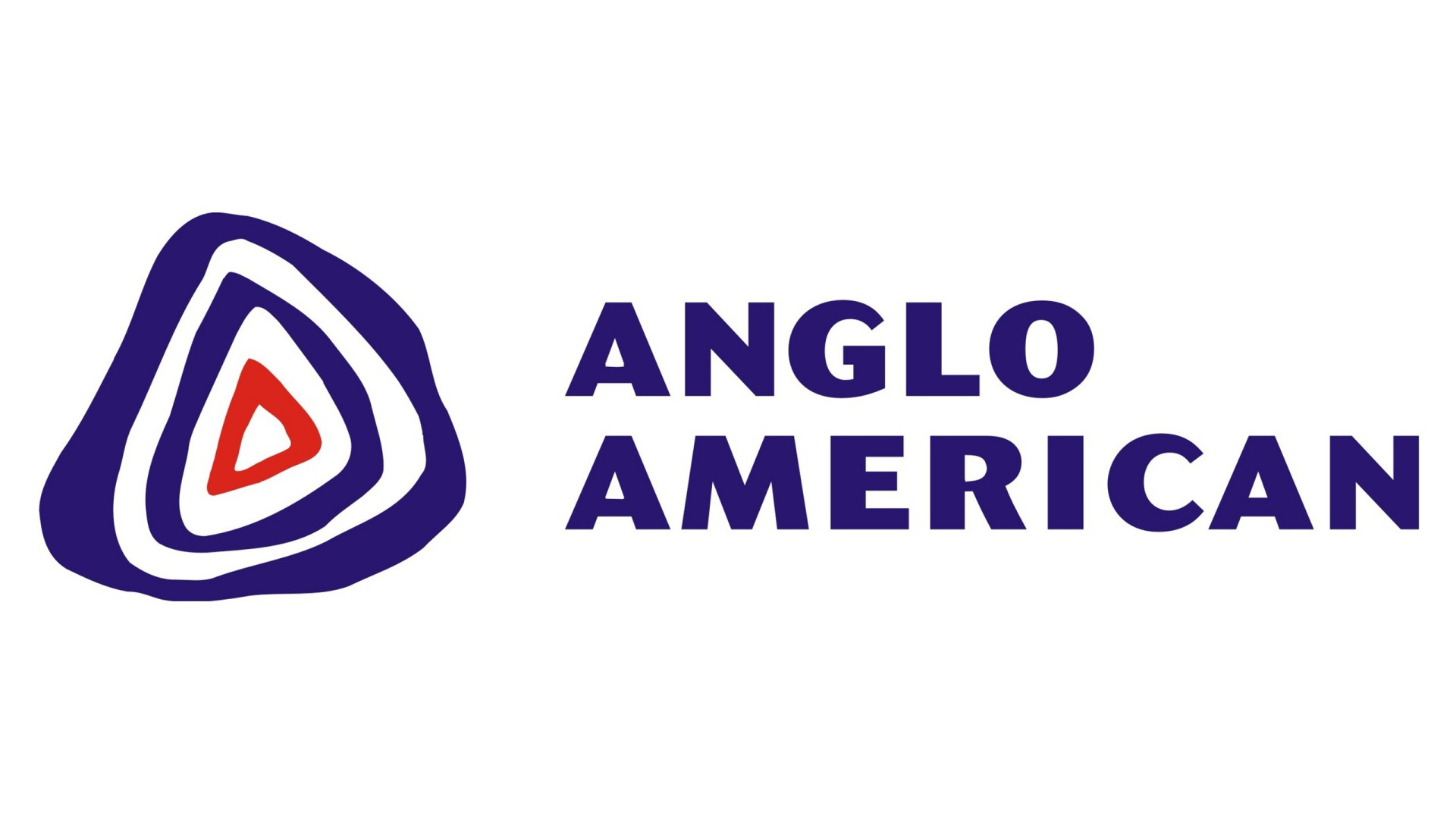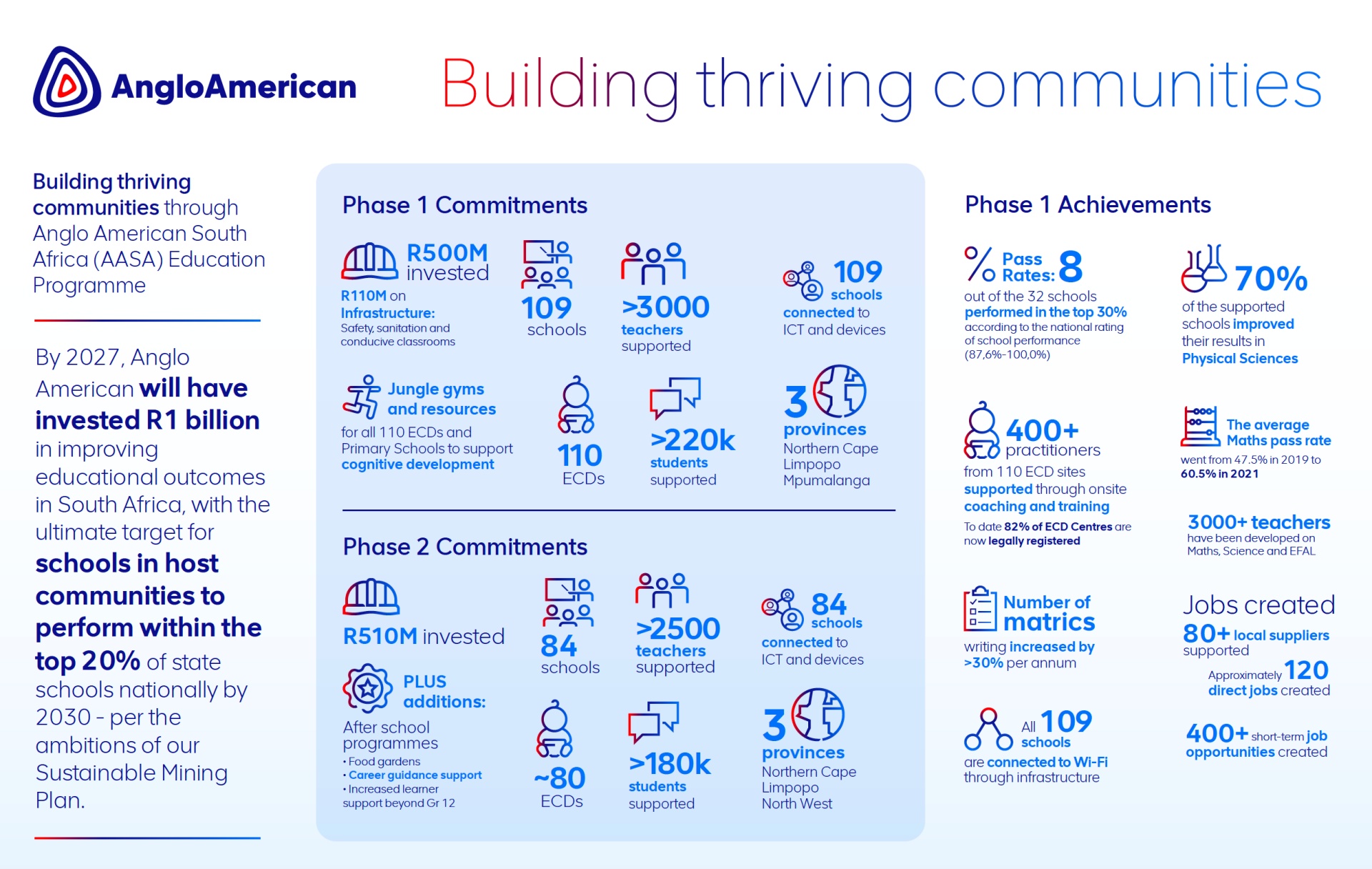Anglo American this week launched the second phase of its education programme in South Africa. The programme is in partnership with the Department of Basic Education (DBE) and doubles its scope and commitment to improving educational outcomes locally.
For those unfamiliar with the mining company‘s local efforts in the education space, over the past four years the programme has reached 222 000 learners and 3 391 teachers at 109 schools and 110 early childhood development centres. It marks an investment of more than R100 million per year as a result of the aforementioned partnership with the DBE.
The next phase of the programme will see Anglo American investing a further R510 million to support an additional cohort of 84 schools and about 80 early childhood development centres in Limpopo, Northern Cape and North West over the next five years.
R110 million of this will be invested in infrastructure to enhance access to quality school infrastructure for learners and teachers, the mining company explained.
By 2027, Anglo American says it will have invested more than R1 billion in improving educational outcomes in South Africa. It adds that the the ultimate target for schools in its host communities is to perform within the top 20 percent of state schools nationally by 2030.
“By doubling our investment and targeting specific outcomes, we are going far beyond simply acknowledging the fundamental right of every child to quality education – we are making it happen. Supporting access to better education and school infrastructure, creating sustainable jobs, and contributing to brighter and healthier futures is one of the many ways we are delivering a lasting positive contribution, supporting communities to thrive beyond the life of our mines,” noted Nolitha Fakude, chairperson of Anglo American’s Management Board in South Africa, in a press release sent to Hypertext.
“Our partnerships with the Department of Basic Education and other key stakeholders are fundamental to the success of the programme and the transformational impact we can have as a responsible business,” the chairperson added.
A breakdown of the initiatives launched during the first phase of the programme can be viewed in the infographic below.


